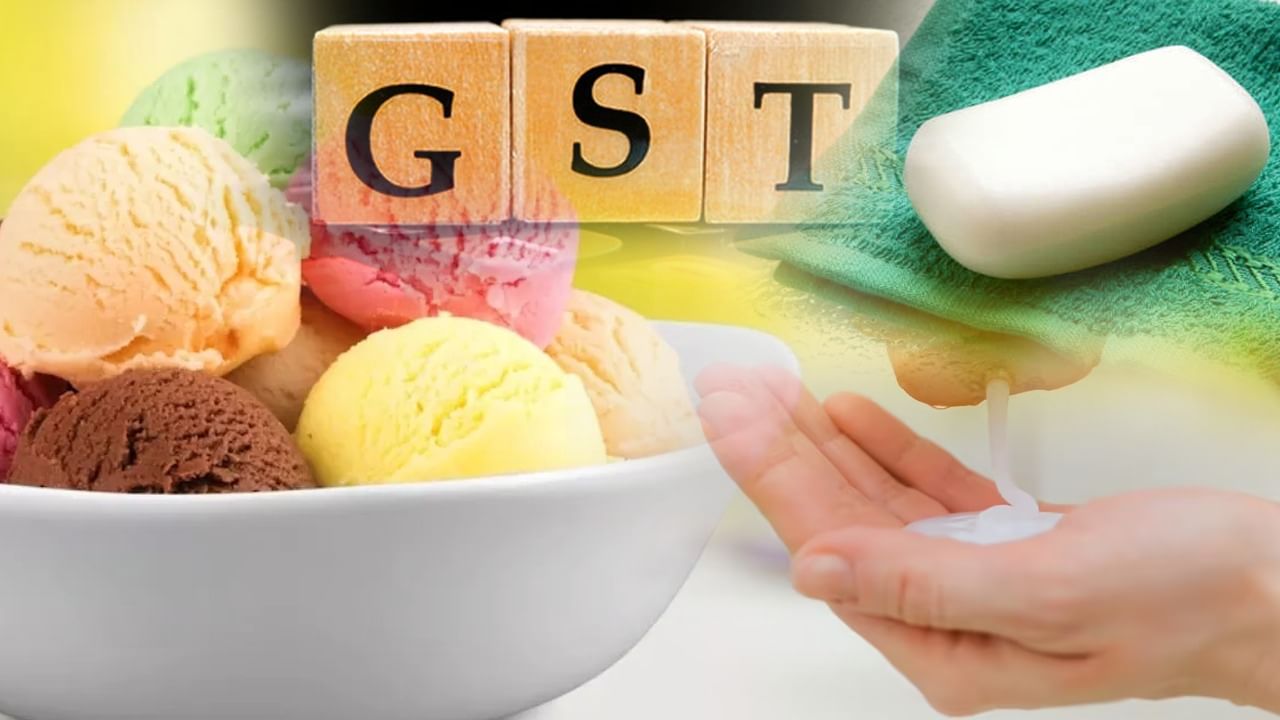FMCG companies
Before the implementation of new GST rates, from ice cream to soap and shampoo, consumer products have started appearing in shops at affordable prices. Brands and retailers want to avoid the race for last minute stocking and take advantage of positive consumer trends. Retailers are fast filling their shops with FMCG products.
Finance Minister Nirmala Sitharaman said this week that after GST changes, 99% of the 12% slab goods will now come into 5% slab. It includes butter, cheese, sweets and salty snacks. Many products like biscuits, ice cream, soap and toothpaste will also be taxed at 18% instead of 5%. Although new tax rates will be applicable from Monday, but companies are already sending tax and sending products to retailers. Mohit Khattar, CEO of Grawis Foods Private Limited, Owner Grawis Foods of Ice Cream Brand Baskin Robins, said that all our bills have now shifted to 5% GST.
Benefits of seeing the first product?
In the ET report, grocery product manufacturers said that they have started sending select low -cost products to distributors and retail shops. On the condition of anonymity, a senior official of a personal care company said that some of our big packs are already seen with retailers, and we will increase it at the end of the week. He further said that this is being done so that on the morning of 22 September, our products with low prices are available in shops. He said that the bill of these products is being paid at new GST rates, and we are ready to forgive the difference to at least some extent.
Companies like Proctor & Gamble, Hindustan Unilever, Laraliel, ITC and Britannia have announced new prices through advertisements in newspapers or through social media platforms like Instagram. P&G has reduced the prices of its head and shoulder and panine shampoo brand, pamphres diapers, gilate shaving cream, old spice deodorant and Wicks Decantant. HUL has reduced the prices of Dove and Clinic Shampoo, Bru Coffee, Kisan Jam, Lux and Lifeboy Soap.
Hope to increase sales
Quick-commerce and e-commerce companies have also started sales and discounts in various categories to take advantage of taking first steps. Amitesh Jha, Chief Executive Officer of Quick-Development Platform Swiggy Instamart, said that he is taking advantage of GST savings early by giving discounts on many products since Saturday. Amazon Now, a late entering company, is running a ‘annual savings of Rs 25,000’ campaign and cashback of up to Rs 200 on daily essential commodities on its app.
The government has simplified GST rates in three main slabs. 5%, 18%and 40%. While the rate of 5% applies to most daily essential commodities and household items, the rate of 18% is the new standard for most other consumer products and services. Luxury items and ‘sin’ categories such as gas -rich drinks and tobacco are most placed within 40% tax. Companies are heavy on GST benefits to improve sales in various categories, as after the recession of five quarters, when consumers affected by inflation, especially in cities, either reduced consumption or adopted low -priced packs, which affected both the quantity and value of sales.
Consumption will increase
Sudhir Sitapati, Managing Director of Synthaol Soap making company Godrej Consumer Products, said that there has been a slight softening in consumption for the last few years, but a combination of income tax and GST measures will give boost to development in all areas. He said that not only those categories will benefit where the rates have been reduced, but will also benefit those categories where GST has not been reduced, as the total cost available on consumption and discretionary expenses will increase. Companies have started sending products with new price tags, although the government said on Thursday that re-lobbling on the remaining stock with new values is optional and has extended the use of existing packaging materials to March 31, 2026, as well as eliminating the earlier need to publish revised MRPs in newspapers. Grant Thornton, partner and tax dispute management head Manoj Mishra in India, said that the structure compliance for transition in GST will reduce the cost and operational challenges. He said that this will also ensure transparency for consumers at the retail level and the ground reality can also be understood.
